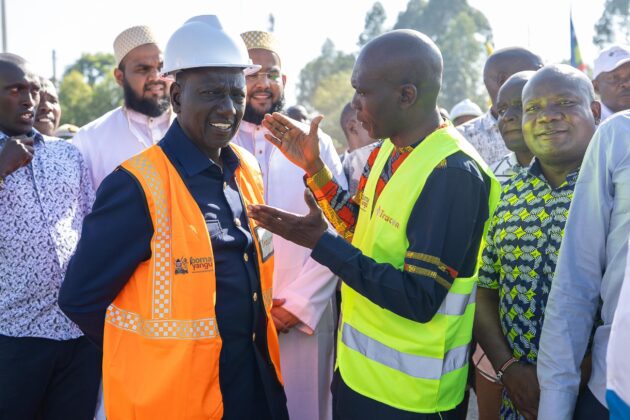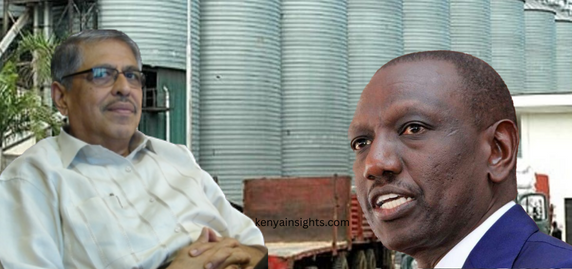The strained relationship between President William Ruto and Mombasa-based billionaire Mohamed Jaffer is now an open secret. Reports, verified by Mambo Mseto, indicate that Jaffer, once a beneficiary of the G-G oil deal, has begun to curse the Head of State over punitive taxes affecting his business.
Despite past tax battles, Mohamed Jaffer reportedly managed to maintain a monopoly in Kenya’s grain handling and LPG industry. However, the latest changes seem to have halted his dominance.
“Mzee anapiga meza akikumbuka jinsi mambo yanavyo endelea,” said a source who didn’t wish to be named.
All the same, Jaffer’s reaction contrasts sharply with his prior benefits from a multi-billion oil deal. This shift suggests significant displeasure with the new competitive landscape and challenging expectations.

Pres William Ruto during a past event
Nevertheless, Jaffer’s goose was cooked when Ruto allowed Tanzania’s tycoon Rostam Aziz the CEO of Taifa Gas Group to set up the 30,000-tonne plant at the Dongo Kundu Special Economic Zone in Likoni, Mombasa a venture that deflated his market grip.
Ruto also announced the introduction of subsidized gas that would see prices slashed to the ease of poor Kenyans, this was a direct hit to the income of the billionaire.
Aziz had for years been denied licenses to set base in Kenya and this was attributed to Jaffer’s influence on the Uhuru regime given his close links with Raila Odinga who by then was closely knitted to the government.

Pres William Ruto and his Deputy launches UFA Gas station
It didn’t come as a surprise that Aziz who supported Ruto in the campaigns was immediately awarded the licenses to the dismay of Jaffer.
For years, Jaffer through his company African Gas and Oil Company Limited (AGOL) has been able to maintain the hold of the liquid petroleum gas (LPG) industry. According to Energy CS Davis Chirchir, the firm controls 75 percent of the country’s gas supply. And now Ruto’s plan for cheaper gas spells doom for the empire that has rested on the monopoly.



